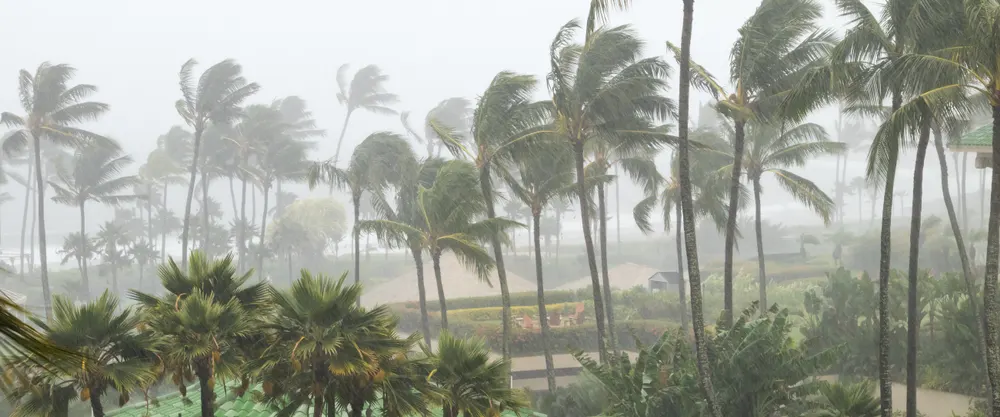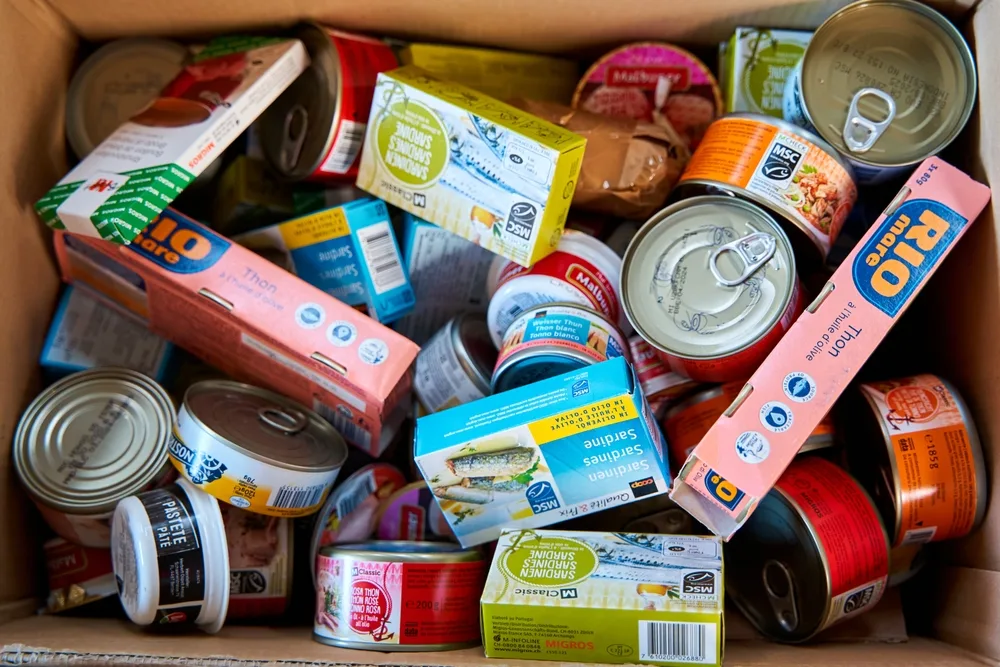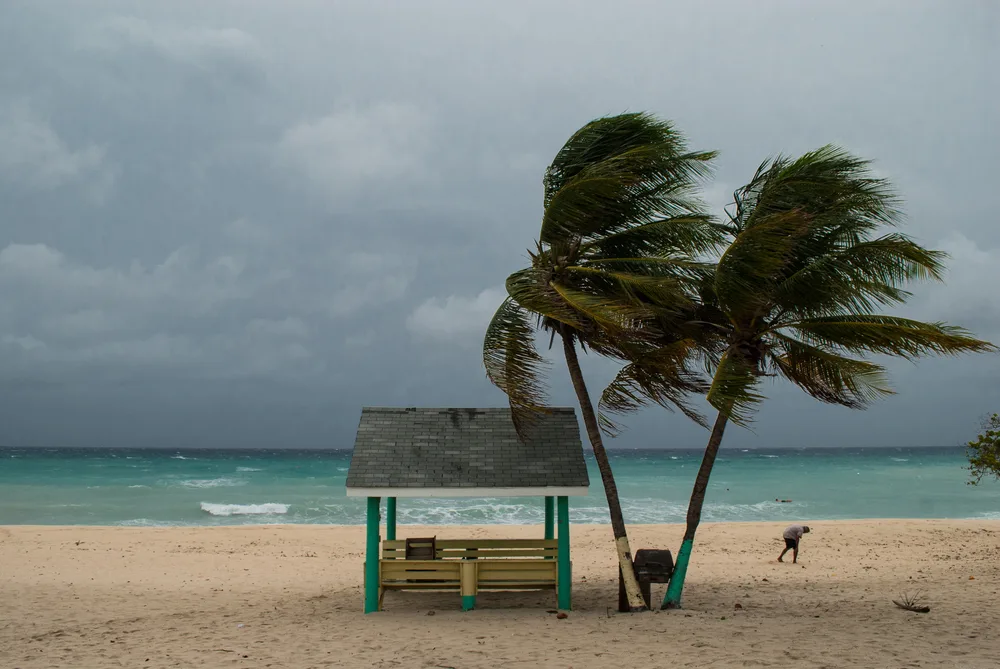Hurricanes are one of the risks to people visiting or living in the Caribbean. Learning what times of year to avoid and what to do if you are there for a storm can make travel a lot safer and more fun.
As a sailor and someone who’s spent most of her life in hurricane zones, I’ve been through a few storms. Here’s what I’ve learned about cutting your risk while enjoying beautiful destinations.
Hurricane Season in the Caribbean: A Summary
The Atlantic hurricane season officially runs from June 1 to November 30. Storms don’t follow our calendars, though, and hurricanes have popped up both before and after the official dates of the season.
In most years, the season starts off slow. You will get a few tropical depressions and maybe a named storm or two. These tend to fizzle out. It’s the second half of the season that usually gets the more intense weather.
When the water has had all season to heat up, it is more likely to feed a storm’s ferocity. There are, of course, no guarantees. There have been named storms before hurricane season begins.
There are some years where El Niño or La Niña conditions have made the weather milder, or wetter, or more severe. Plus, a changing climate means that our ways of tracking and predicting storms will have to evolve.
Should I Avoid the Caribbean During Hurricane Season?

Ryan DeBerardinis/Shutterstock
The Caribbean is a pretty big region, starting southeast of the Gulf of Mexico and running all the way to the northern borders of South America. There are over 700 islands in the region, not all of which are considered high risk for hurricanes.
While it’s a good idea to schedule travel to the Bahamas or Puerto Rico outside hurricane season, islands like Aruba, Bonaire, or Curacao are more likely to be safe.
What to Do If There Is a Hurricane in the Caribbean
Before you go on your trip, review what the local advice is for hurricanes. If you are in an area that is likely to be evacuated, where do people typically go?
If you are likely to be told to shelter in place, what does that look like? Watch the weather forecasts to see if a storm is headed your way. Sometimes storms develop quickly or move in unexpected ways.
This can result in you getting stuck on an island when there is a storm. Follow the instructions given by local authorities and the people at your hotel. They can help you get to a safe shelter where you can ride out the storm.
How Can I Help After a Hurricane Hits?

Paper box filled with canned food. Dnipro, Ukraine – 06.30.2022/Try_my_best/Shutterstock
Many Caribbean countries are affected by hurricanes every season. As good travelers, we want to make sure they are able to make as quick and as full a recovery as possible. Pay attention to local reports before deciding to go to a hurricane zone.
Sometimes an area needs as many rooms available as possible, and can’t accommodate tourists for a while. Other times, local hotels and restaurants will say they are ready for travelers to come back and put money into the local economy.
Look at which organizations are looking for funds for local hurricane relief. International organizations like the Red Cross are well known. You can also find local groups that respond to specific disasters.
Things to Consider
A few things to consider about hurricanes and you:
- Be patient and flexible. If your hotel cancels your reservation because of an impending storm, that’s a good thing. It’s better to miss a vacation than to ride out a serious storm in an unfamiliar place.
- Choose destinations carefully. That four-star room in the Bahamas may be a bargain in August for a reason.
- Stay informed. If a storm is threatening your hotel, find out what the procedures are if it hits.
Frequently Asked Questions

Drew McArthur/Shutterstock
If you aren’t used to hurricanes, they can cause a lot of apprehension. These are some of the most common questions people have when they are entering a hurricane-prone region like the Caribbean:
What is the best month to go to the Caribbean?
Most people recommend going to the Caribbean during the dry season. This generally runs from December through April. It’s the time of year you are less likely to encounter daily rain showers and a time that the temperatures dip a bit.
If you decide to go during the rainy season, especially hurricane season, know that daily showers are just part of the region’s weather patterns. Plan around an hour or two of rain in the afternoons. Keep an eye on weather reports, so you know whether any severe weather or large storms are on the horizon.
What months to avoid the Caribbean?
Hurricane season runs from June to November. Storms tend to be more frequent and more severe in the latter half of the season. It’s best to avoid trips to the Caribbean from August until late October or so.
Which Caribbean island is safest from hurricanes?
Aruba is considered the safest when it comes to hurricanes. Only about four a year come close, with most storms turning northward before they can make landfall. As a result, they get some wind and rain, but little flooding.
What month has the least hurricanes in the Caribbean?
December, January, and February are all part of the dry season. These mean low rainfall and moderate temperatures. Hurricanes can develop outside the official hurricane season dates, but they are least likely during these driest months.
So, When Is Hurricane Season in the Caribbean?
Hurricane season in the Caribbean officially runs from June 1 until November 30. But, storms are under no obligation to stick to our schedules, so they can appear both before and after those official dates.
If you are planning a Caribbean vacation, keep an eye on the weather and look out for any developing storms. By observing the weather and learning about the spot you plan to visit, you can enjoy a happy and safe Caribbean vacation.



